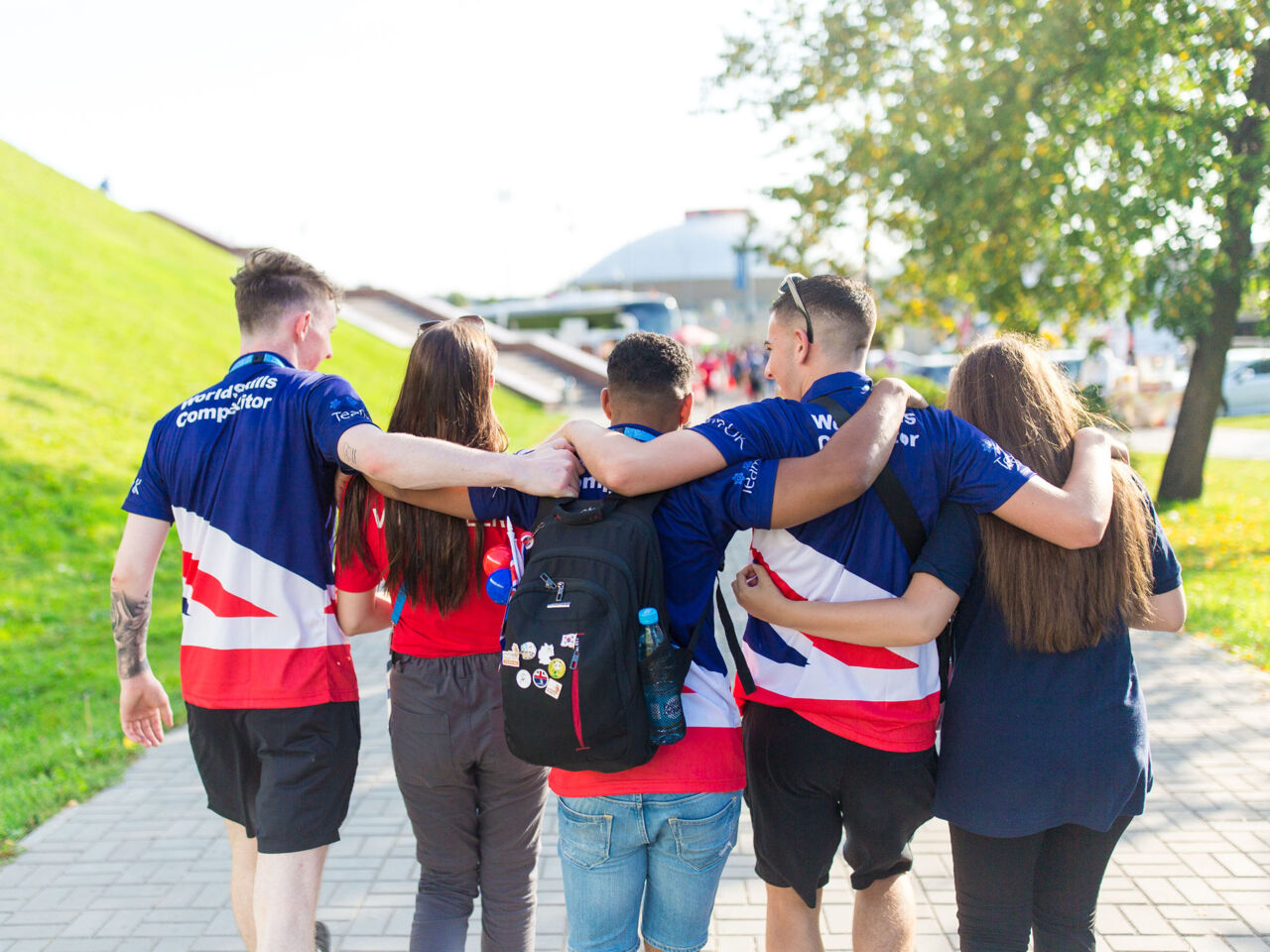20 January 2022
Prioritizing mental health in Competition preparation
Training for WorldSkills Competitions is increasingly including both mental and physical preparation for the rigours of the contest.

The struggles of American gymnast Simone Biles during last summer’s Tokyo Olympics have thrown the mental well-being of elite competitors into sharp focus.
The issue, though, is not restricted to sport. Increasingly, training for WorldSkills Competitions includes both mental and physical preparation for the rigours of the contest.
And with training and education badly disrupted by the pandemic and many young people isolated and working remotely, the pressure on their mental well-being has only increased. The good news is that many Member organizations now recognize this issue and are taking steps to address it.
One example is the Mental Training Workbook (PDF, 0.7MB) developed this year by WorldSkills Belgium with Skills Finland. As the introduction explains:
“Mental training as a way of life requires you to pay attention to your general well-being; the issues this encompasses include appropriate physical exercise and nutrition as well as ensuring that you get enough sleep and set aside time to recover from exertion.”
“Your vocational skill level can be very high, but without discipline, a desire to win, self-confidence, motivation and restraint, it is not possible to perform to the standard required of a Competitor in the WorldSkills event.”
Another Member who utilizes mental training is WorldSkills UK, with simple steps like an early morning exercise programme before the start of the competition day.
WorldSkills UK has worked with a performance coach as a Team Leader. Dr. Stephanie Tibbert says while her job is to enhance performance skills in Competitions it also has a strong element of pastoral care for young people who may be travelling away from their home and family for the first time. Initially focusing on fitness and nutrition in her work with the team in the run-up to WorldSkills London 2011, Dr. Tibbert realized that mental resilience was also important:
“What I noticed working at that time was that physically they were managing well, but psychologically it was too much for many of the Competitors and they didn’t have all the skills to develop that.”
Returning to work with WorldSkills UK in the run-up to the next WorldSkills Competition, Dr. Tibbert says the team is adopting what she calls a “more holistic” approach to training.
“So we take principles from sports psychology, from organizational psychology, from health and well-being, from mental health to try to enhance the Competitor’s experience.”
Even under the best of circumstances, there are challenges, Dr. Tibbert says:
“We have Competitors who come on board who are just overwhelmed by the whole situation, who feel out of their depth.
“Our job there is about supporting them to reach their potential, to develop the skills, to manage step by step, little steps at a time, develop small goals to enhance their ability to perform.”
The COVID-19 pandemic has added a new dimension to her work, with students unable to attend classes for many months and depending on virtual learning, often isolated at home.
As Dr. Tibbert notes: “When they’ve had trouble, it’s because it’s been so difficult, there’s not been the social environment. We haven’t been able to build a team, a sense of a team together. So, they’ve got that loss, that cohesion between the groups.”
In response, a member of WorldSkills UK’s performance and well-being team has been assigned to every team member, checking in with them at regular intervals. Group webinars and training sessions in clusters have also been a tool to keep team cohesion.
“If you’re not working, if you’re furloughed,” says Dr. Tibbert, “there’s a real need to still get up, get dressed, clean your teeth, go out for a walk. To put a structure to your day in place.”
These simple suggestions also form part of the group sessions, with coaches touching base individually to make sure the advice is working out.
Other areas tackled dealing with pressure, something all Competitors face. Members of the team often came up with their own solutions, that including playing a violin in public and being videoed while learning to parallel park.
As a result, says Dr. Tibbert, “we can see what happens to them, so we can say this is how it feels when I’m under pressure, what strategies can I use to help me manage that feeling of stress or being overwhelmed.”
These lessons can be used to help the wider TVET community, she says, with WorldSkills UK currently creating mindset programmes for colleges to help motivate and engage their students.
The lesson of the pandemic, she says, is that blended learning is probably here to stay and that teaching delivery methods need to be adaptable.
But also, that “people are incredibly resilient. They can adapt to so many different situations. I also think the learning community, the community of Competitors, has been extremely supportive. Having that online support between Competitors has been really nice as well. I don’t think we realized how supportive competitors could be to each other.”